Smilegate strives to create a better world where future generations can live happily. To this end, it discovers and invests in companies with new technologies and values, supporting their growth and innovation. This approach fosters the creation of new markets and jobs while promoting technological advances that benefit society. In “Startup Garage,” we take a closer look at companies partnering with Smilegate to expand social impact.
“As We Make aims to achieve sustainable development and create social value based on social responsibility. As members of society, we grow together with local communities and partners.”
This is the management philosophy of Son Soo-young and Ryu Ji-won, co-founders of As We Make. They have built a model focused on creating positive relationships with local communities and growing alongside them.
This startup operates a micro-fulfillment business, leading the digital transformation of the 72 trillion KRW food materials market. It offers Q Market, a DX SaaS (Digital Transformation as a Service) solution that helps manage price fluctuations, order processing, sales management, invoicing, and delivery requests all in one place.
Q Market connects mid- to large-sized food supply markets with residents living within a 3 km radius, delivering groceries within three hours of ordering. Compared to conventional grocery delivery services, which usually deliver the next day at the earliest, this model offers clear advantages in freshness and speed.
Thanks to this, local grocery stores using As We Make’s services have on average, 5.8% higher sales than those that do not, with the top 20% seeing sales increase by up to 9%. Moving beyond simple grocery order brokerage, As We Make is expanding into services like “Q Mom,” which mediates packing support by residents, and “Haet Delivery,” which provides delivery workforce brokerage to help partner stores improve logistics efficiency.
The rapid expansion of As We Make was made possible by investors like Smilegate Investment.
Smilegate Investment joined existing shareholders in participating in As We Make’s Series A round, securing 5 billion KRW in investment. Thanks to this, As We Make was able to rapidly drive the digital transformation of local markets and strengthen a community-based model that fosters collaboration and connection between grocery stores and residents.
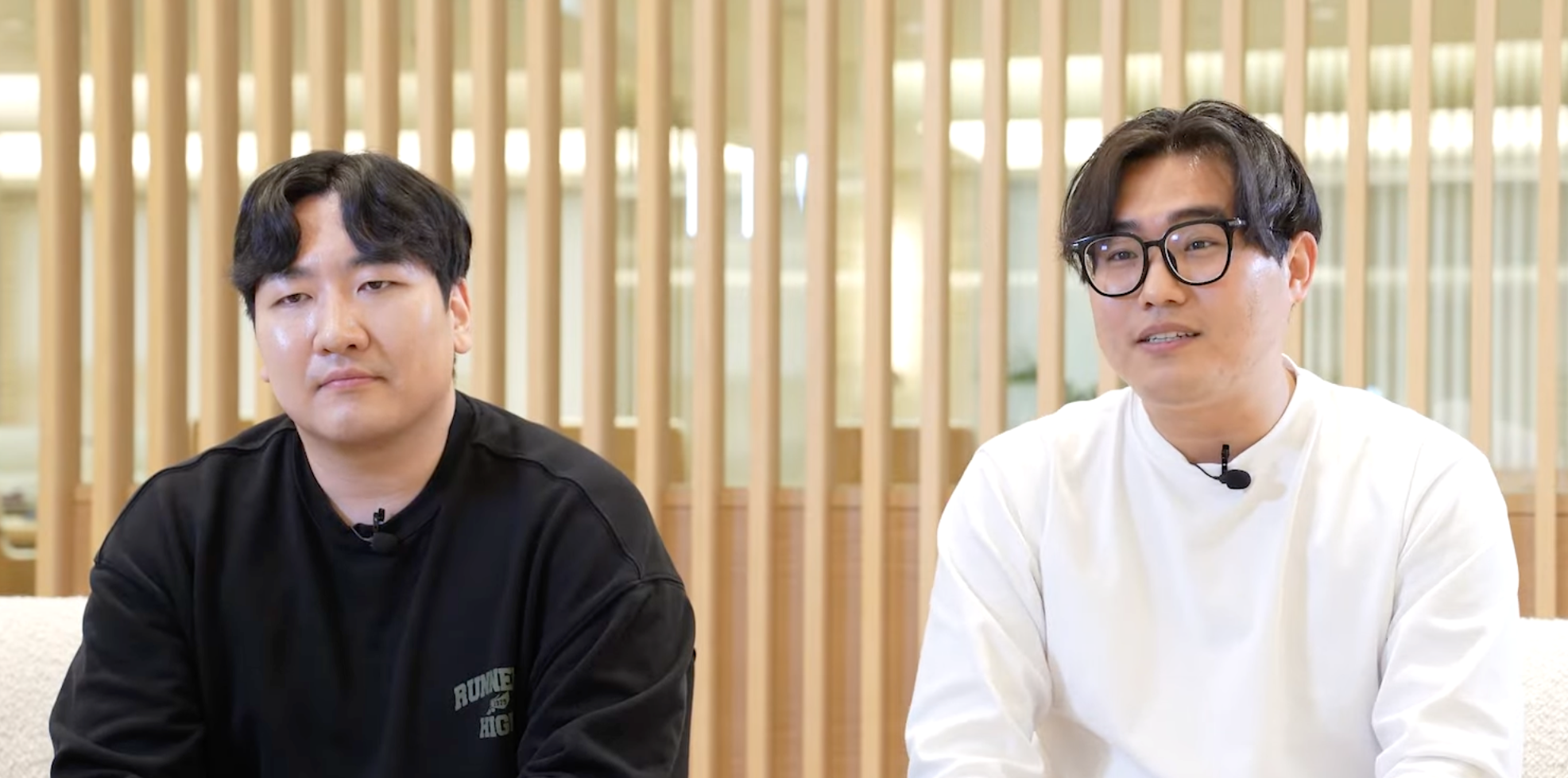
(From left) Ryu Ji-won and Son Soo-young, Co-founders of As We Make
I’m curious—what exactly does your business do with local food supply stores?
Local food supply stores are at the centre of our micro-fulfilment service, which is essentially a smaller version of a fulfilment model where products are received at warehouses, stored, packaged, and delivered.
From the planning stage, we thought affordable prices and fast delivery would be our core competitive edge. Food supply markets were the best fit for this strategy. These markets are evenly distributed outside the Seoul metropolitan area and are located close to residential areas. In addition to this geographic advantage, unlike large supermarkets, they have no mandatory closing days or business hour restrictions. Most importantly, agricultural, livestock, and seafood products are over 40% cheaper.
As We Make provides digital transformation (DX) solutions to mid- to large-sized food supply markets ranging from approximately 500 square meters (5,300 square feet) to 3,300 square meters (35,500 square feet). We build systems that allow them to take and deliver customer orders and help them manage these processes effectively. Our solution integrates inventory management, order processing, and POS systems. The minimum size of 150 pyeong was set because that’s about the scale required to handle seafood products.
You don’t have a background in distribution. What made you decide to enter this field?
Honestly, e-commerce is an extremely competitive market with so many players. From the beginning, I didn’t set out specifically to run a distribution business.
When I was a university student during a summer session, I didn’t have enough money to order food for delivery. I decided to cook for myself, but when I tried to order ingredients, even the fastest option was next-day delivery. It was inconvenient. I wondered if there were other people like me, so I posted in the university community offering to deliver ingredients immediately.
Within a 3 km radius of the school, I took orders through a Google Forms link and delivered them on foot. There was more demand than I expected. Some days, I had over 50 orders. I felt this business had potential. I treated it as a validation period and ran it for about four months. The profits I earned became the seed money to establish the company.
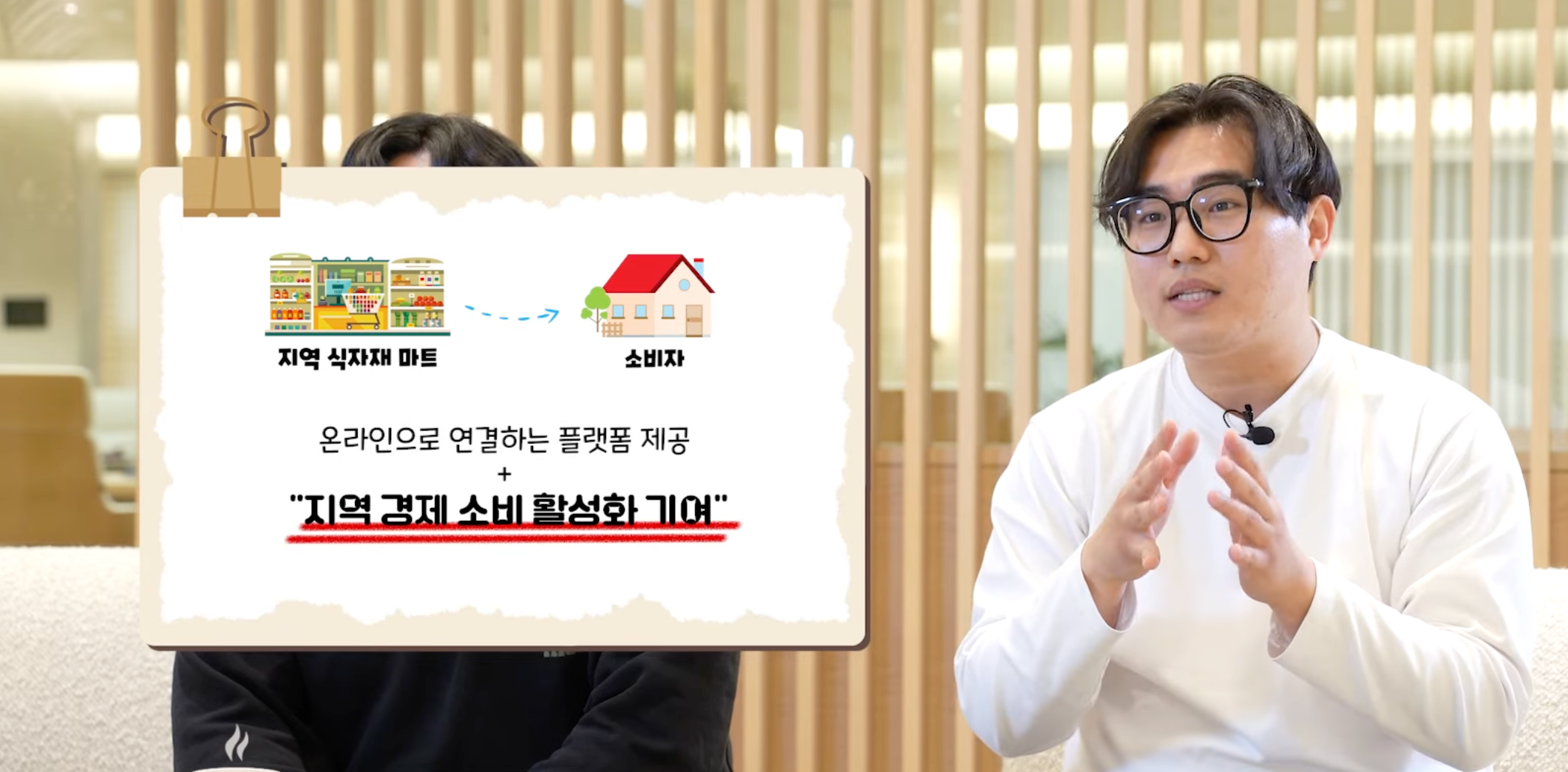
Son Soo-young, CEO of As We Make
Securing partner food supply stores must have been very important. How did you start working with local markets?
Naturally, at first, the markets didn’t see us favourably. Sometimes when we went to meet them, they would even throw cigarettes or salt at us. They said there had already been many attempts similar to ours. But those previous attempts were all about taking away each other’s existing customers rather than increasing overall sales, which left a bad taste. We explained that we weren’t about splitting the existing pie but about making the pie bigger. We persuaded them that we could help grow their sales.
Another challenge was that the owners and main customers of these markets felt awkward about doing business online. There’s still a fixed idea that “you have to see groceries with your own eyes to buy them.” So there wasn’t much sense of urgency for digital transformation. In the grocery market, offline stores still have a higher market share than online players. That’s because people value trust in where they buy groceries, checking freshness firsthand, the need for portioning, and concerns about spoilage.
After being turned down many times, we visited one last market with the mindset that this might be our final chance. Fortunately, they saw potential in us, and we were able to start doing business. Later, I found out that there had been seven other proposals sitting on that store owner’s desk. When I asked why he picked us, he said, “You looked the youngest and somehow had the least to your name.” He said he felt that people like us, who had nothing, would be desperate and work hard. And in fact, we really did spend every day on-site working with them.
Thanks to that, as of the first half of 2024, we have partnered with 501 markets, with 111.4 billion KRW in transaction volume for the first half alone and a cumulative total surpassing 250 billion KRW. Recently, some partner markets have even started proactively asking us to grant them exclusive rights for their areas.
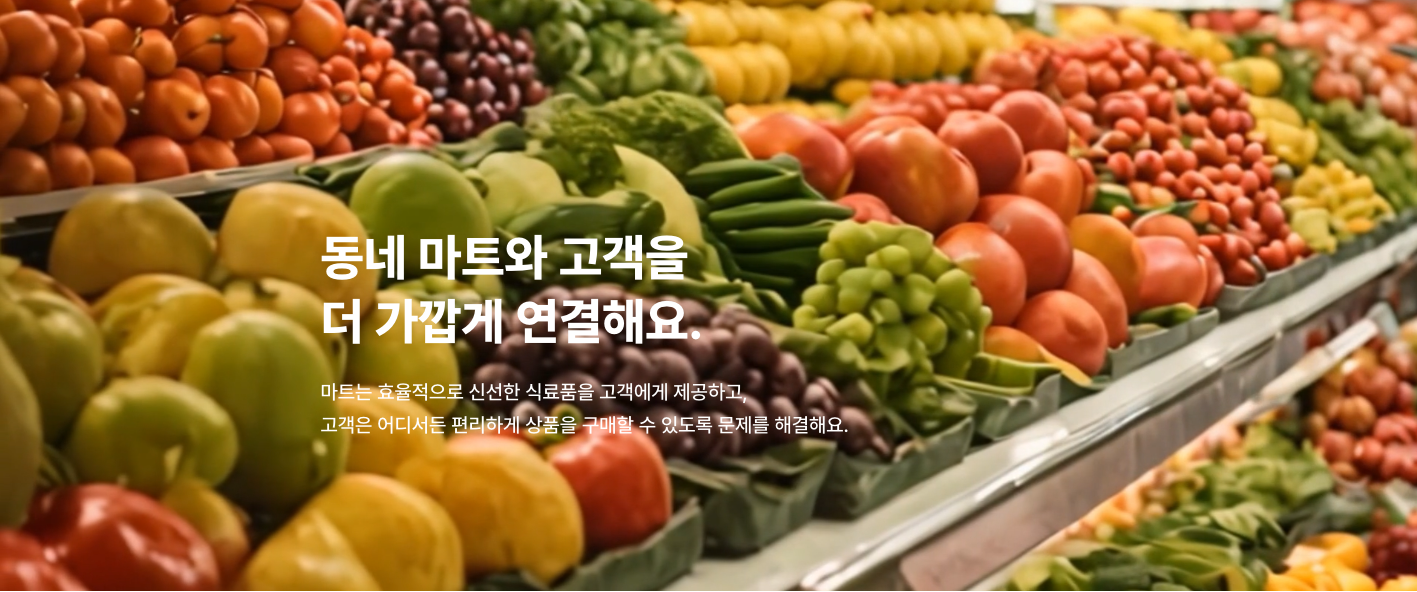
출처_애즈워메이크 홈페이지
Some people might have a bias that products from local markets are lower quality.
In reality, frequently purchased items like fresh foods are similar whether they come from big-box stores or food supply markets. Still, the effect of brand image is quite significant. To address this, we implemented a compensation system for cases where fresh foods spoil. We first refund the customer, then request reimbursement from the market afterward. The markets appreciated being able to control product quality, and customers liked receiving fast refunds. Since our service connects customers to nearby vendors, we also make quick exchanges possible to prevent any lingering quality issues.
Do you think As We Make’s services align with the goals of coexistence and sustainable development?
Yes, I do. We are constantly finding ways to help local markets thrive and creating spaces where residents can come together, and we’re already doing that.
We now have 501 partner markets and over 250 billion KRW in cumulative transaction volume. If you consider the sales of businesses that don’t use our service as a baseline of 100, the sales of those who do use our service are on average 4.8% higher. The top 20% of businesses saw sales increase by as much as 9%. The markets gained higher revenue, and customers enjoyed greater convenience. If this continues, it will contribute to the growth of local businesses and help vitalize the local economy.
In fact, one of the markets that chose us was located on the outskirts of the city, where foot traffic was low, and there was a large supermarket right next door, making it hard to maintain sales. But after starting online sales, word spread that their products were affordable, and more customers began visiting the store in person.
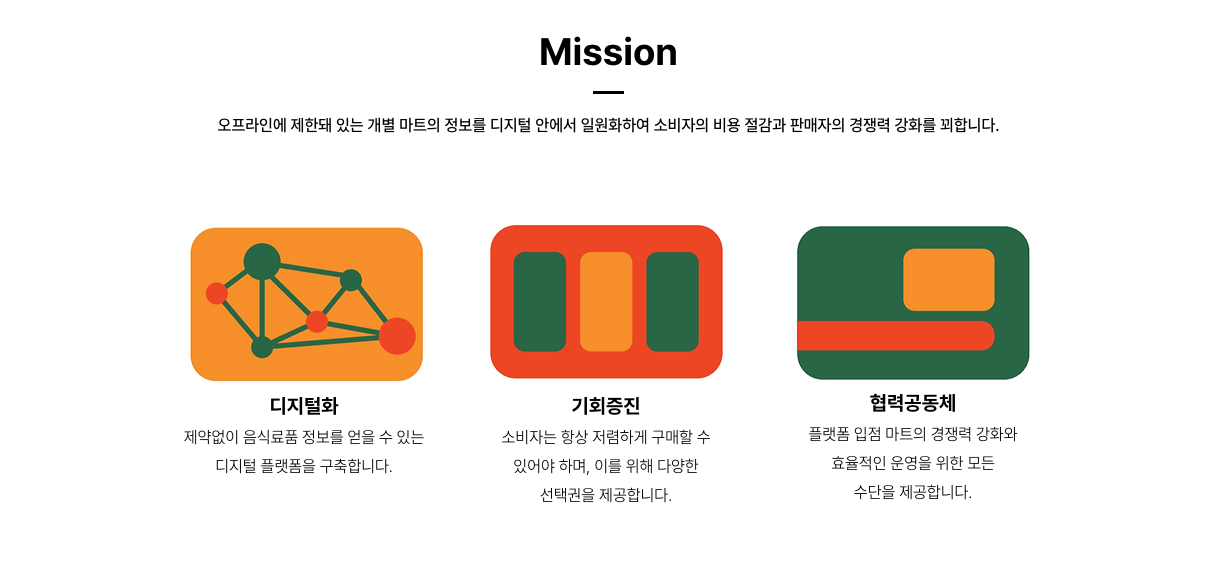
출처_애즈워메이크 홈페이지
You received an investment from Smilegate. What stood out to you about that experience?
Honestly, our service doesn’t have a big technological differentiation. Anyone could build it. The difference lies in operations. What matters is sales capability. The people who recognised our ability to execute were the ones who considered investing.
When we were seeking investments, we were rejected countless times. Nine out of ten people said no. Then we met Smilegate Investment.
We spend a lot of time on-site, so our work has the feel and reality of the field. When Smilegate met us, they asked us over 300 questions. In our answers, terms naturally came out that you’d only know if you had really done the work yourself. They aren’t the words you pick up just by studying. I think they appreciated that.
Later, during on-site due diligence with Team Leader Kim Yumi from Smilegate Investment, we showed everything from how we process orders to how deliveries happen at two partner markets. We gave them a firsthand experience of how it all works. Thanks to that, we were able to successfully complete our Series A funding.
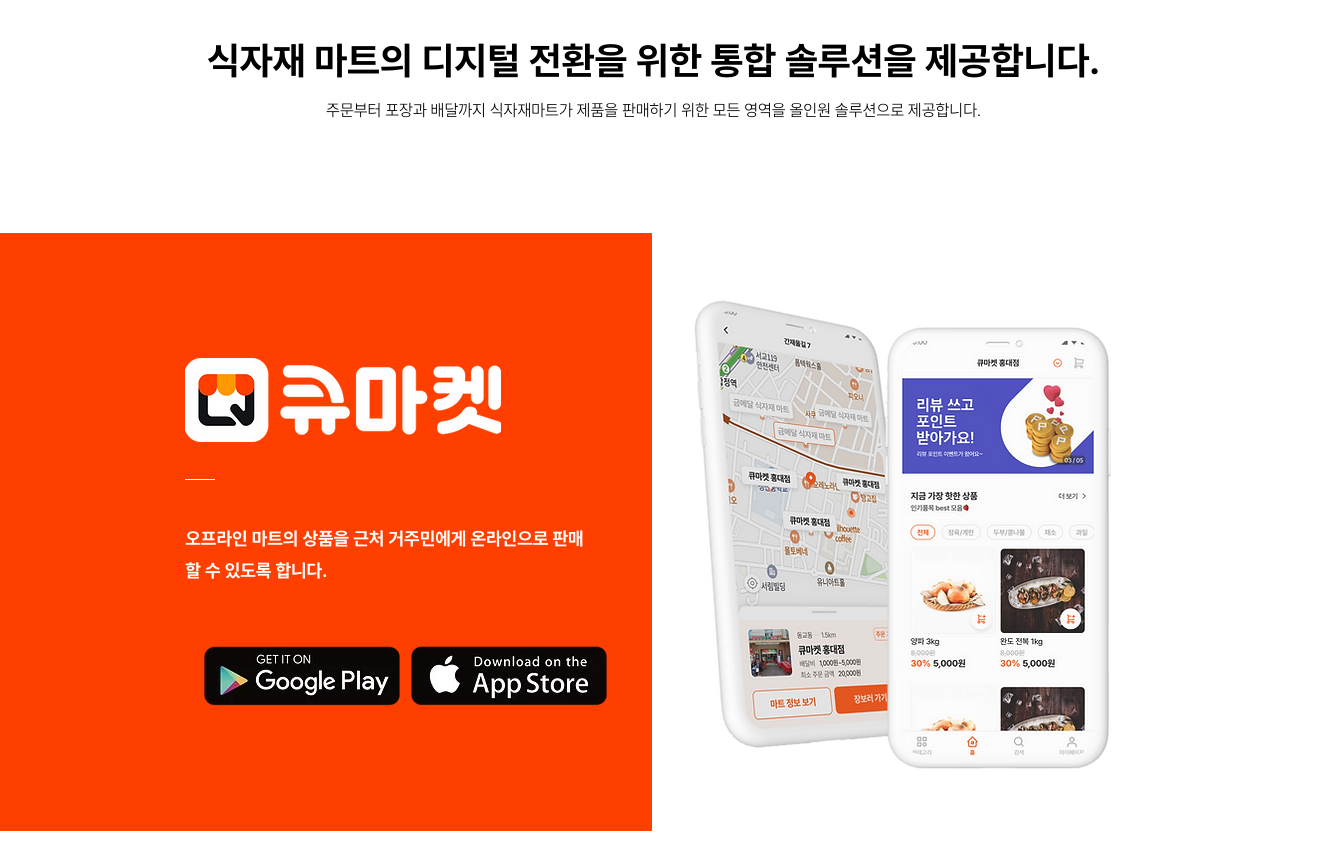
출처_애즈워메이크 홈페이지
How do you plan to grow this service that is based on coexistence with local markets?
Our service wouldn’t exist without local markets. We plan to build on this foundation and refine it further.
For example, we’re considering systems where customers get coupons when they visit the market in person. We’re exploring ways to energize the local economy by integrating online and offline channels. We have many ideas, from making shopping more convenient to turning markets into community hubs.
We’ve accumulated a lot of sales data so far. We can analyze it to gain insights and identify new opportunities. We plan to use this as a tool to drive higher sales for the markets.
I’ve heard the market size covered by Baemin is around 13 trillion KRW. The food supply market is estimated to be about 72 trillion KRW. I think only food supply markets and convenience stores will survive in Korea. That’s because, as consumer buying patterns change, revenue distribution among retail channels is also shifting. Markets that have struggled between big-box retailers and online/delivery apps can grow by emphasising the advantages of close-proximity, small-quantity shopping.
However, when quoting content in articles, please credit it as “Smilegate Newsroom.”



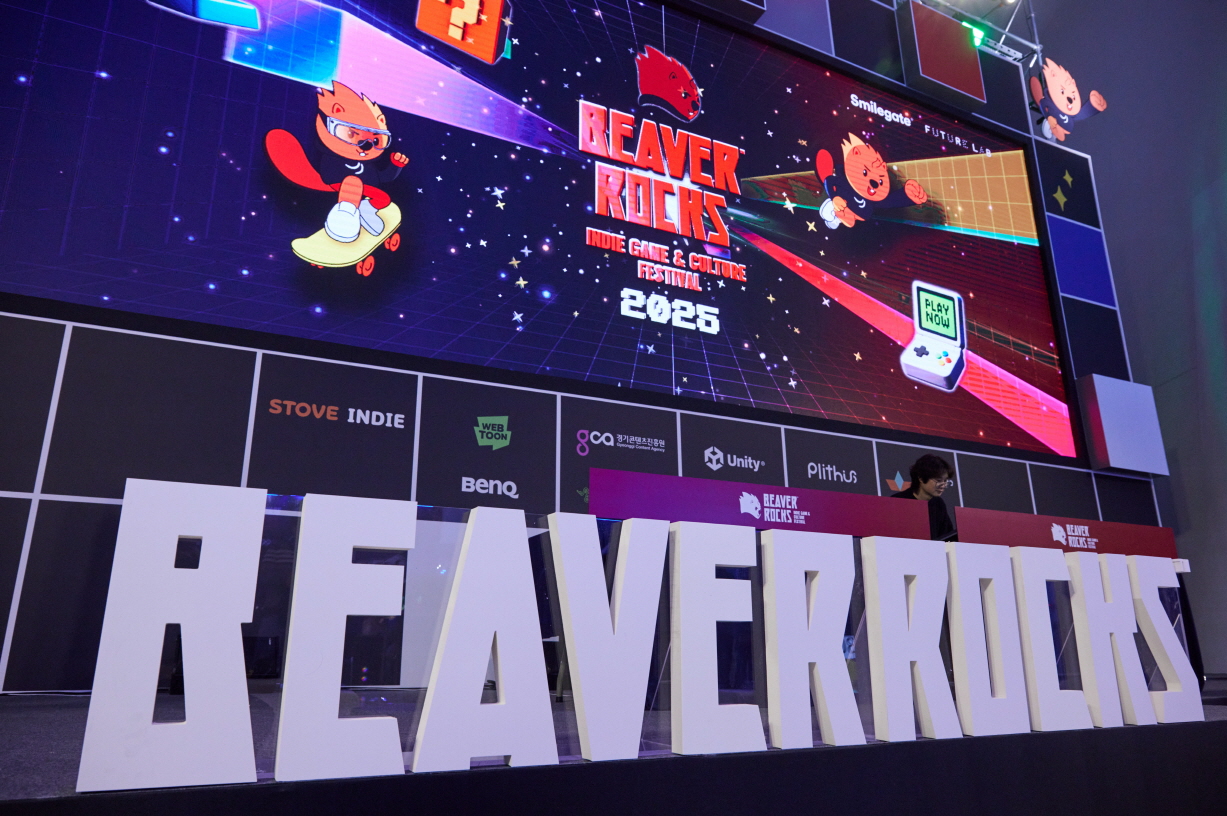
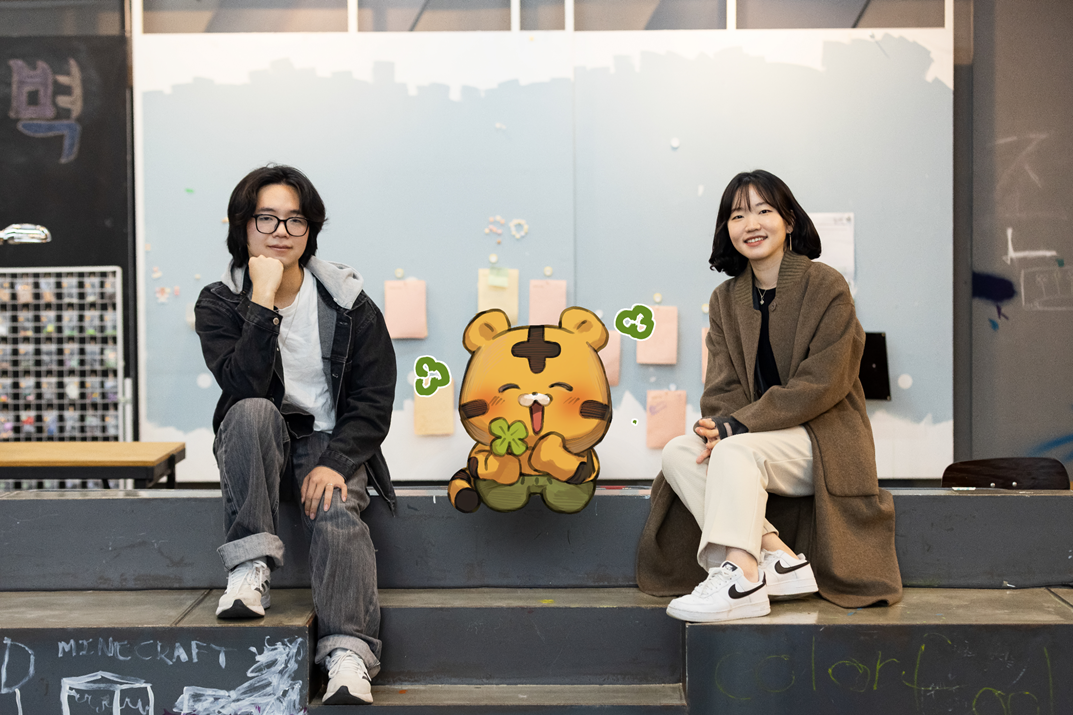

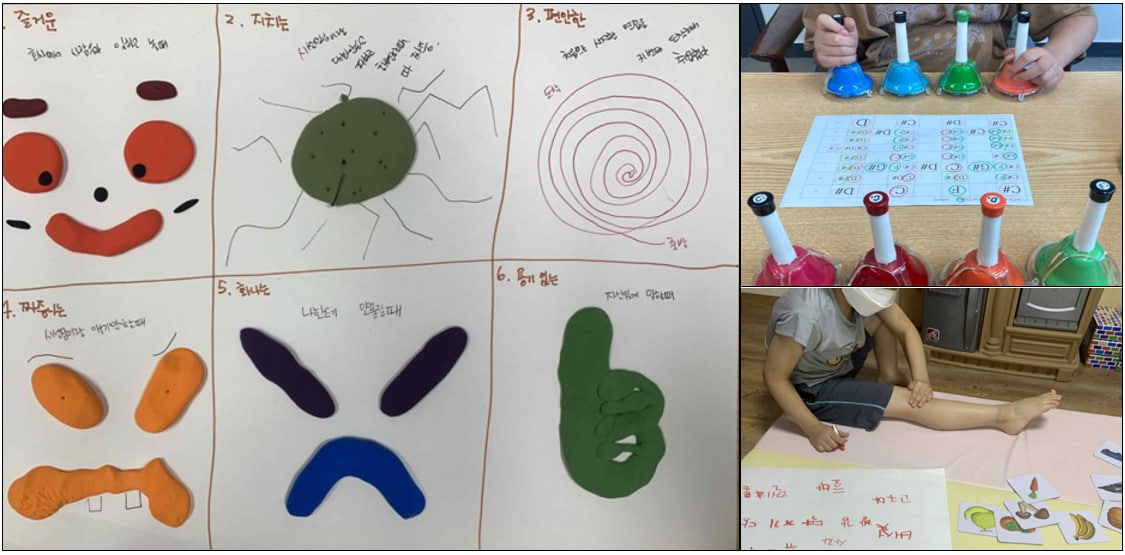
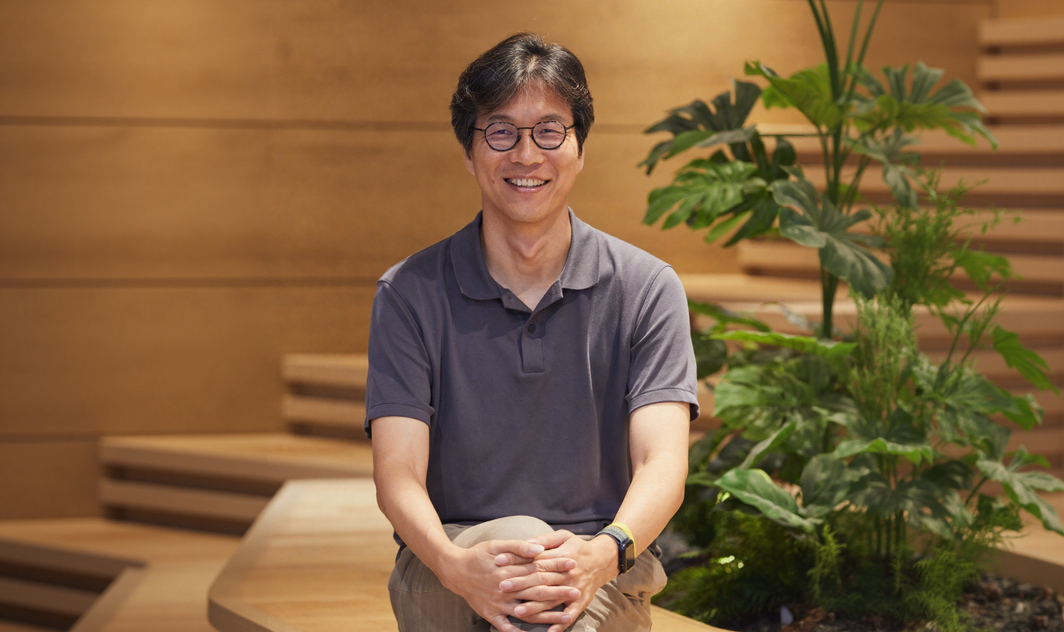


 TOP
TOP
